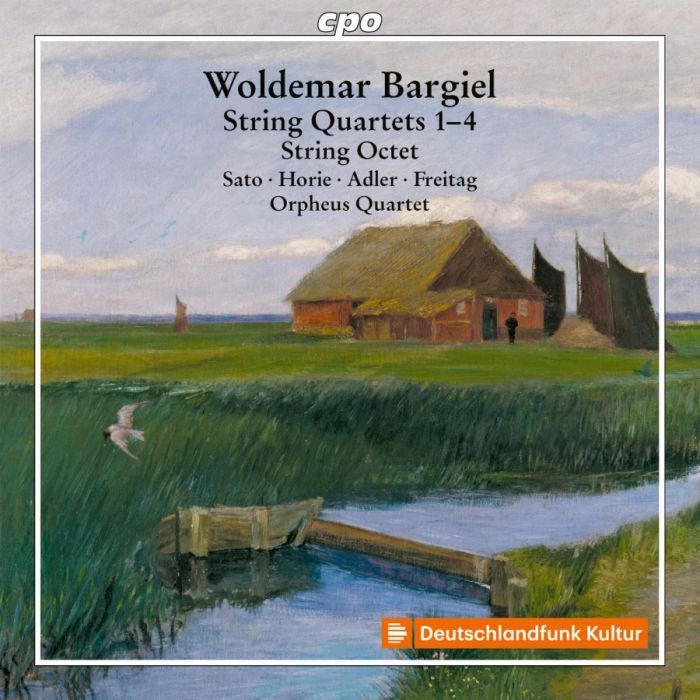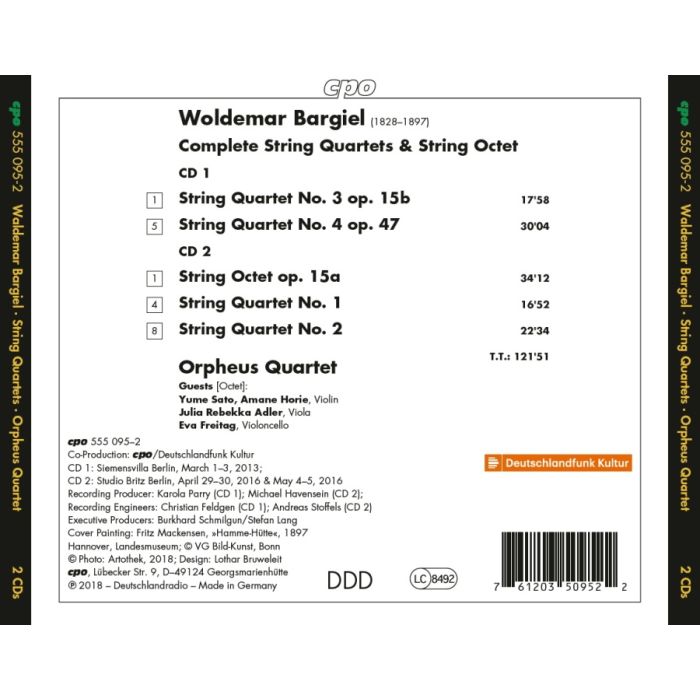
(Produkt nie został jeszcze oceniony)
kompozytor
Bargiel, Woldemar
tytuł
Bargiel: Complete String Quartets & String Octet
wykonawcy
Orpheus String Quartet
nr katalogowy
CPO 555 095-2
opis
Woldemar Bargiel was Clara Schumann’s half brother and Robert Schumann’s brother-in-law. Already in the nineteenth century hardly any lexicon failed to note these relational circumstances, surely more to Bargiel’s disadvantage since it for many years led to his relegation to the »second ranks.« It is only recently that the study of his private papers, which somehow miraculously managed to survive two world wars, has inspired increasing interest in his oeuvre.
His papers include manuscripts as well as more than 1, 500 letters demonstrating that he was a sought-after personality in the European music world. Moreover, in 2010 Dean Cáceres published a study based on analytic methods laying the foundation for what is an impressive demonstration of Bargiel’s personal style – which the Orpheus Quartet now thoroughly confirms on its complete recording of the composer’s string chamber music. Bargiel’s chamber compositions display the most skillful formal elaboration. Like Beethoven, Bargiel attached more importance to the elaboration of the thematic material than to the melodies themselves. On the whole Bargiel may be regarded as one of the most important academic composers of the first half of the nineteenth century. During his lifetime numerous fellow musicians, among them Brahms and Draeseke, highly valued his works.
His papers include manuscripts as well as more than 1, 500 letters demonstrating that he was a sought-after personality in the European music world. Moreover, in 2010 Dean Cáceres published a study based on analytic methods laying the foundation for what is an impressive demonstration of Bargiel’s personal style – which the Orpheus Quartet now thoroughly confirms on its complete recording of the composer’s string chamber music. Bargiel’s chamber compositions display the most skillful formal elaboration. Like Beethoven, Bargiel attached more importance to the elaboration of the thematic material than to the melodies themselves. On the whole Bargiel may be regarded as one of the most important academic composers of the first half of the nineteenth century. During his lifetime numerous fellow musicians, among them Brahms and Draeseke, highly valued his works.
nośnik
CD x 2
wydawca
CPO
data wydania
4.10.2018
EAN / kod kreskowy
761203509522
75,00 zł
Produkt na zamówienie
Wysyłka ustalana indywidualnie.
Darmowa wysyłka dla zamówień powyżej 300 zł!
Darmowy kurier dla zamówień powyżej 500 zł!
sprawdź koszty wysyłki

